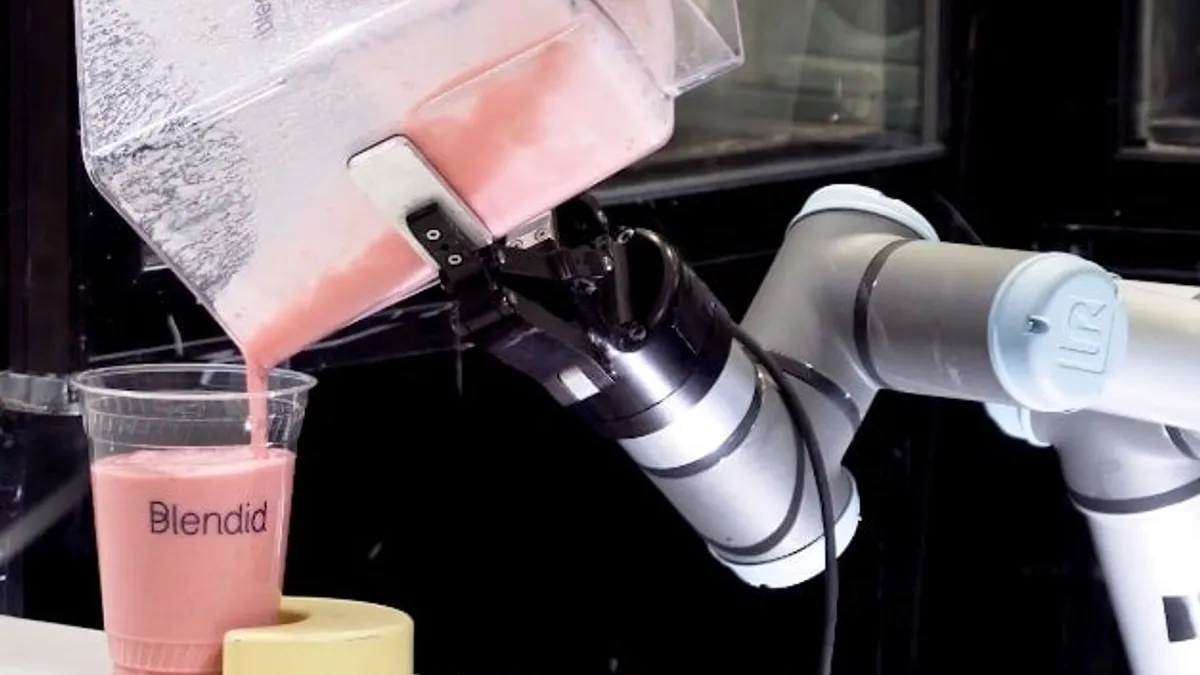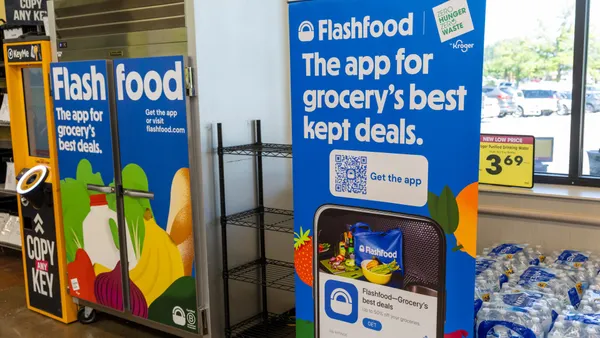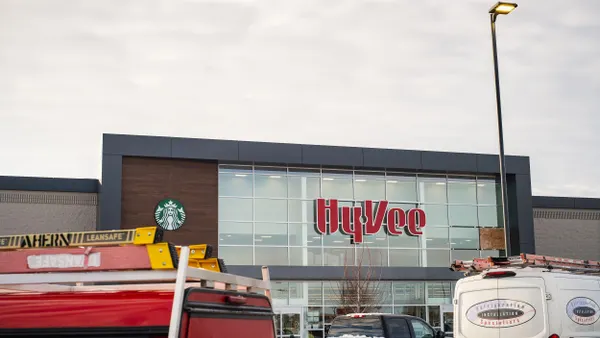Dive Brief:
- Walmart has introduced smoothie-making robot Blendid to its store in Fremont, California, giving shoppers a contactless alternative to smoothie bars, Blendid announced in a press release.
- After receiving and processing the order from the mobile app or QR code scan, the robot selects and measures the ingredients, blends the smoothie and pours it. The entire process for one drink takes about three minutes, and Blendid can make up to 45 drinks an hour and nine drinks at the same time. A 12-ounce smoothie costs between $4.97 and $5.97.
- Blendid’s nutritionists and chefs created several recipes for the latest kiosk at the Fremont, California, store with plant-based, vegan and gluten-free options. With the Blendid robot, Walmart, like other retailers, is looking to combine the efficiencies of robots with contactless food and drink orders.
Dive Insight:
Walmart’s foray into offering smoothie-making robots is among the recent efforts by grocers and retailers to turn to robots for contactless food and drink prep.
Restaurants, especially fast-food chains like White Castle and McDonald's, have already started using robots to replace human employees. Unlike the burger-flipping robotic arms, grocers have opted for food and beverage options capitalizing on consumers' health needs. This summer, Heinen’s and ShopRite turned to “Sally,” a salad-making robot developed by San Francisco tech firm Chowbotics, to prepare and dispense made-to-order salads.
The Fremont store’s kiosk is a newer model that takes up less space and offers new features, like make-ahead drink storage and enhanced machine vision technology, the company said. It will serve up smoothie flavors like a "classic" strawberry-banana and a "banana jolt" that includes coconut water, whole grain oats and coffee.
Sunnyvale, California-based Blendid uses machine learning and artificial intelligence, offering robots that can customize, made-on-demand drinks. The Blendid kiosks, now available in four Bay Area locations, consist of a robotic arm, blenders, a refrigeration system and dispensers storing the fruits and vegetables, liquid and other ingredients, like flax, chia and ginger.
To place an order, people can use their smartphone at the kiosk or order ahead with the Blendid app.
As the coronavirus pandemic continues, autonomous kiosks like Sally and Blendid can tackle labor shortages and consumers' coronavirus concerns at grocery stores. But the technology isn't cheap. Each Sally terminal costs $35,000.












